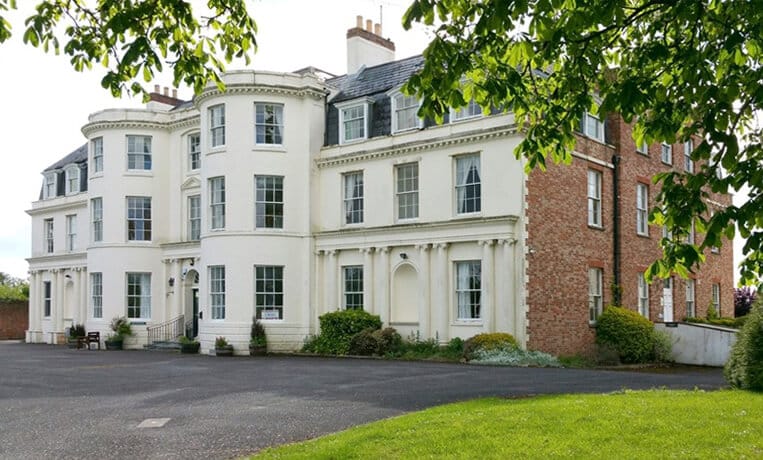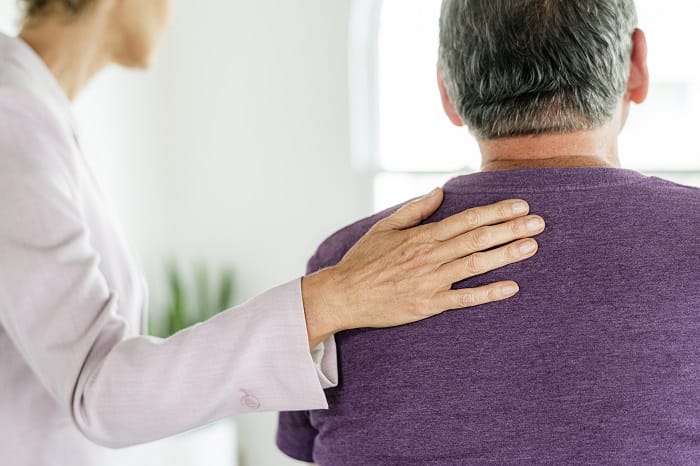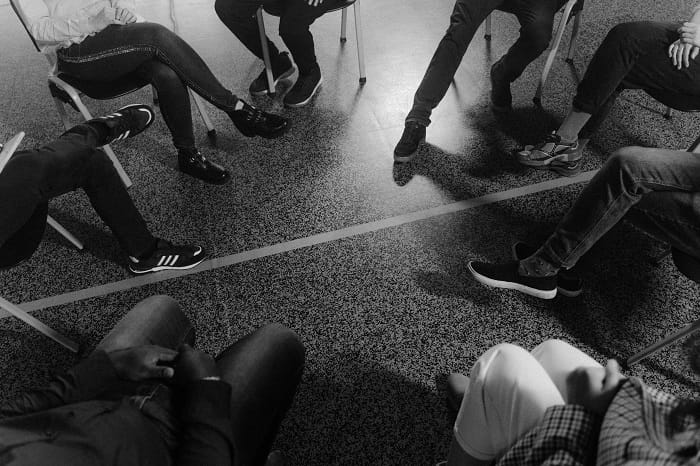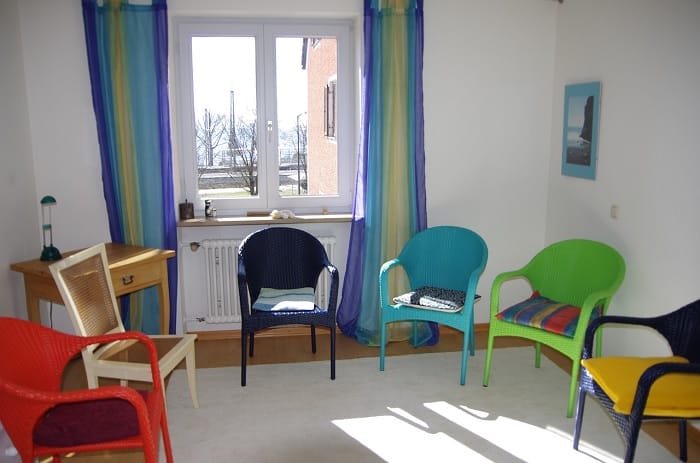According to Adult Substance Misuse Treatment Statistics, [1] in 2021, 130,490 people entered treatment [2] for substance dependency in the UK.
51% of these entrants were for opiate addiction, 28% for alcohol and 10% for cocaine.
The borough of Croydon is ranked the third most deprived area in London.
In the past several years, it has seen a drastic increase in drug and alcohol dependency.
These statistics are extremely dangerous, particularly when one considers the serious impact addiction has on life expectancy. [3]
Croydon is in serious need of fully supported drug and alcohol rehab treatment, in particular considering:
| Addiction and the need for rehab in Croydon | Addiciton and rehab statistics in Croydon |
|---|---|
| Estimated Dependent Drinkers and Opiate/Crack Users in Croydon | 5,300 – 80% not in treatment |
| Emerging Concerns |
|
| Adults Entering Rehab Treatment |
|
| Children Living with Adults in Rehab Treatment (2019/20) | Approx. 300 – a third with contact with early help or social care |
| Hospital Admissions and Mortality |
|
| Adults in Rehab Treatment in Croydon |
|
| Children and Young People in Rehab Treatment (2019/20) |
|
Dealing with a substance dependency is never easy and often requires professional help.
Get alcohol and drug rehab in Croydon for a wide variety of addictions, [4] including:
This article will discuss drug and alcohol rehab in Croydon and near Croydon, detailing the various rehab recovery services [6] that are available in this region.
Get the support you need from a drug and alcohol rehab in Croydon by calling our team today on 0800 140 4690

You might be wondering if you or your loved one truly need help, and at what point the habit is considered a dependence or addiction.
Scientific research into addiction [7] by Daria J. Kuss defines addiction as ‘mental preoccupation, neglect of personal life, escapism, mood modifying experiences, tolerance, and concealing the addictive behaviour’. [8]
If you’ve found yourself thinking a lot about your vice, neglecting your friends, family or hobbies, using it to escape, using it to take the edge off life, or if you’ve built up a tolerance or you’re trying to hide your usage, you may fit the criteria of addictive behaviour. [9]
Addiction is a terrible disease which can impact anyone of any age, [10] sex, background or faith, so its signs are something to always look out for.

There are several options for rehab in Croydon and near Croydon: this includes both private treatment and treatment available through the NHS.
To access substance dependency treatment through the NHS, individuals must first speak with their GP.
Through their GP, individuals might be provided with several options for dealing with their addiction – this might include counselling or entering a treatment program at the NHS’ expense. [11]
Counselling is free through the NHS, but there is an average wait time of 8 weeks.
The counselling will most likely address trauma and past experiences, as opposed to the addiction itself.
Free and NHS-run services in Croydon[12] tend to include:
Address: 190 Church Rd, Croydon, CR0 1SE
Telephone: 0300 123 9288
Website: https://www.changegrowlive.org/drug-alcohol-croydon/info
Address: 50A Sydenham Rd, Croydon, CR0 2EF
Telephone: 020 8662 4770
Website: https://www.wdp.org.uk/
Address: 5 Mint Walk, Croydon, CR0 1EA
Telephone: 020 8726 7750
Website: https://www.croydon.gov.uk/health-and-wellbeing/drugs-and-alcohol
Other organisations where you can access help for free include NHS Foundation Trust, Turning Point, We Are With You, National Association for Children of Alcoholics, Change Grow Live, Al-Anon and Alateen.
Rehabs and organisations are advised by the American Society of Addiction Medicine [13] and the National Institute for Health and Care Excellence [14] so you are in safe hands with person-centred care.
You may also be offered sober living houses as part of your aftercare following your time at rehab in Croydon or near Croydon to help you maintain your sobriety.

Both inpatient and outpatient treatment is available through the NHS, but it is not a straightforward process.
Often only those with the most severe substance dependencies are offered rehab treatment. [15]
The reason for this is that it requires government funding to cover the costs of the individual’s treatment.
The waiting time for NHS rehab [16] can vary between 6 months to a year.
Usually, the individual will be expected to have tried other options before being considered for inpatient rehab treatment through the NHS, [17] such as counselling, attending a local help group, or outpatient treatment.
Croydon council also offers services [18] that are specifically aimed at those suffering from drug or alcohol dependency.
Alternatively, there are many private facilities in Croydon.
However, these can be expensive with rehab treatment stretching into multiple thousands of pounds.
Find out your treatment options for drug and alcohol rehab in Croydon by calling our team today on 0800 140 4690

The cost of rehab in Croydon and near Croydon can vary and will depend upon whether the individual enters a private or public facility, and whether they enter an inpatient or outpatient rehab treatment program.
The average cost of private rehab treatment in the UK is £495 per day.
This amounts to roughly £14,000-15,000 per month.
However, some facilities can be either significantly cheaper or more expensive.
Serenity Addiction Centres, for example, which have a rehab facility based in Croydon, offer a free assessment.
Impatient treatment covers a range of services, such as:

As outpatient rehab treatment does not require the individual to stay at a facility, it is less expensive.
This is because the patient continues to live at home, removing the cost of food, shelter and 24/7 care.
This is an excellent way to save money on rehab treatment, but it is not suitable for those with severe addictions.
For help choosing between inpatient and outpatient rehab in Croydon, call our team today on 0800 140 4690

In some cases, the cost of rehab can be covered by health insurance.
Some examples of this are employee health insurance and private health insurance.
This depends upon the individuals’ insurance package.
It should be noted that insurance that covers rehabilitation costs is usually more expensive.
Those accessing rehab treatment via their workplace healthcare plan will likely be required to inform their employer of their addiction.
Companies such as BUPA [19] cover the costs of inpatient treatment.
To access this, it is recommended that the individual contacts their chosen rehab facility and their insurance provider in order to determine the exact costs.
For help using heath insurance to access drug and alcohol rehab in Croydon, call our team on 0800 140 4690

Studies have found that substance dependency can harm cognitive functions and encourage denial.
As a result, many individuals with an addiction do not realise it and are incapable of taking the first step towards recovery. [20]
To counter this, it may be useful to enact an intervention.
In essence, substance intervention seeks to encourage someone with a substance dependency to face their addiction and behaviour. [21]
There are several aspects to a successful intervention – these include persuading the individual that they might have a problem, encouraging accountability, and preventing enabling behaviour.
Persuasion, as the word suggests, is the act of convincing someone that they have a problem and need professional help from a rehab.
Accountability is an important aspect of the intervention, as it encourages the individual to understand that they are in control [22] and that the choice to end their dependency is up to them.
Finally, it is important to prevent enabling behaviour – both for the family and the individual.
The thought of intervention can be daunting for all involved, so it is recommended to seek advice from an intervention professional.
An intervention professional will provide useful advice, such as how to plan the intervention, advise on a strategy, and provide useful communication tools. [23]
Make sure your intervention is effective at convincing your loved one to attend drug and alcohol rehab in Croydon by calling us on 0800 140 4690

An example of this is the CRAFT method.
This method was developed to help prevent negative confrontations between families and those with substance dependency.
CRAFT is a form of family therapy that has three primary objectives:
The CRAFT intervention method is based at home, where professional interventionists will visit for regular meetings and assessments.
CRAFT intervention is useful for those who are reluctant to address their addiction.
It focuses less on the negative elements of addiction and instead on achievable goals, solving manageable problems and self-care.
CRAFT is often described as a motivational therapy [24] that focuses on:
Learn more about CRAFT by giving our team a call on 0800 140 4690

Before contacting a GP or entering rehab, it is common for individuals to ask whether they are addicted to a substance.
The question then, is how does one know if they are substance dependent?
Signs that an individual is addicted can vary – it can depend both upon the substance and the duration of use.
However, most commonly, there will be psychical and psychological indicators.
Substances such as heroin, cocaine and alcohol, lead to intense cravings.
Those who have a dependency will experience these cravings, and, without the substance, will experience withdrawal.
Drug addiction negatively affects personality and behaviour.
Those with substance dependency might become irrational, depressed, anxious, or paranoid.
There are also professionally developed tools to help determine if an individual is addicted.

An example of this is the CAGE questionnaire, [25] which was designed to determine if an individual has an alcohol dependency. [26]
CAGE is an acronym:
It is often used during the screening process at rehabilitation and/or medical facilities.
These questions can also be adapted for those potentially suffering from drug dependency.
Not sure whether you need the help of a drug and alcohol rehab in Croydon? Call our team today on 0800 140 4690

The duration of rehab is dependent upon several factors.
On average, however, a rehab programme in Croydon takes between several weeks and several months.
Alcohol rehab, for example, usually takes between 1 week to 3 months.
Cocaine rehab commonly lasts between 1 week to 1 month.
Heroin rehab can last from several weeks to several months.
Some things that influence rehab duration is how long the withdrawal takes and how much post-detox therapy is needed.
Therapy at drug and alcohol rehabs in Croydon and near Croydon might include:
In addition, the period of rehab can be influenced by whether the individual receives inpatient or outpatient treatment.

Inpatient rehab treatment requires the individual to stay at a facility for the duration of their treatment.
On average, inpatient treatment lasts between 28-90 days, although full recovery can take anywhere from six months to five years. [28]
In some cases, inpatient rehab treatment itself can last up to 6 months.
Outpatient rehab treatment is like impatient treatment – individuals will receive medical support during their detox and will be expected to attend therapy and counselling.
The main difference between the two is that outpatient rehab treatment does not require the individual to stay at a facility.
Instead, the treatment is structured [29] around an individual’s life.
Because of this, outpatient rehab treatment tends to last longer than inpatient treatment – usually up to 6 months.
However, short-term treatment is available for those with less severe addictions.
For help choosing between inpatient and outpatient treatment, call our team today on 0800 140 4690

When entering rehab in Croydon or near Croydon, individuals will be assessed to better understand the nature of their addiction and their medical and psychological needs.
Alcohol dependence can be confirmed by the medical team using the Alcohol Use Disorders Identification Test, [30] DSM-5 [31] or CAGE Questionnaire. [32]
It is also worth keeping an eye out for any significant signs of addiction, [33] such as using more substances than is initially intended [34] or wanting to cut down but not being able to. [35]
These can differ significantly between people, even those suffering from the same addiction – for example, someone suffering from a type one alcohol addiction [36] is likely to avoid harm and show low novelty-seeking behaviour, whilst a type two alcoholic [37] is more likely to risk harm and engage in high novelty-seeking behaviour.
For those suffering from alcohol dependency, the first stage of rehabilitation is detoxification.
This is the process of expelling harmful toxins and substances from the body.
This is often an unpleasant experience where the individual will suffer from withdrawal symptoms.
However, this is an important part of rehab.
Alcohol withdrawal [38] can vary from mild symptoms such as headaches and nausea to more severe symptoms such as seizures and hypothermia.
When attending a rehab facility in Croydon, individuals will receive medical assistance and supervision during the detox period.
AWS usually occurs between 6-12 hours after the final consumption of alcohol.
Withdrawal symptoms commonly subside after 24 hours, though some can last up to 5 days.
During the detox stage, it is possible that rehab staff will prescribe medications such as Chlordiazepoxide (Librium) to ease alcohol withdrawal symptoms (alcohol withdrawal syndrome) and minimise seizures.
You might also be given various Benzodiazepines and Buprenorphine, Acamprosate [39], Naltrexone [40] and a wide variety of anti-anxiety medications such as Paroxetine [41], Nefazodone [42] and their various alternatives. [43]
A medically-assisted detox (alcohol detox) is needed in order to try to prevent the effects of alcohol, including Wernicke-Korsakoff Syndrome [44] and delirium tremens.
The effectiveness of these medications in limiting the impact of withdrawal symptoms is why detoxing alone is rarely ever recommended. [45]
Individuals risk significant organ damage [46] during addiction, all of which can worsen during withdrawal, including:
As dangerous as these symptoms are, with the right support they can be properly controlled and can even be reversed. [54]
After the detox stage, the individual will receive counselling to help them overcome the root cause of their addiction. [55]
Finally, a relapse prevention plan will be developed, and the individual will enter the aftercare stage, giving them the best chance of staying sober during the most dangerous days of recovery [56] after rehab is finished.
Beat your addiction with the help of a drug and alcohol rehab in Croydon by calling us on 0800 140 4690

Individuals suffering from cocaine addiction will first be medically assessed and then enter the detox stage.
Cocaine withdrawal varies in its severity.
Symptoms of cocaine withdrawal include:
Cocaine withdrawal occurs between 8-12 hours after the final consumption and lasts between 5-7 days.
After completing detox, the individual will undergo counselling and therapy to determine the best way for them to remain sober after rehab in Croydon. [57]
This is followed by relapse prevention and aftercare.
Overcome your cocaine addiction through a drug and alcohol rehab in Croydon – give our team a call on 0800 140 4690

As a supremely powerful physically addictive drug, heroin recovery is an extremely careful process.
Individuals will be assessed and then enter the detox stage.
As heroin has a much more severe withdrawal process (heroin withdrawal), individuals will be medically supervised 24/7 for the first several days.
Medication, such as methadone or naltrexone, might be administered to help with the withdrawal.
Heroin withdrawal usually occurs between 3-6 hours after the final dose.
Symptoms can include:
These symptoms can last up to 5 days.
Once completing the detox stage, individuals will receive therapy, develop their own rules of recovery, [58] create a relapse prevention plan and then begin aftercare.
You may also receive treatment or advice for any other effects of heroin, such as hepatitis.
Overcome your heroin addiction through a drug and alcohol rehab in Croydon – give our team a call on 0800 140 4690

Although cannabis is not as addictive as some other substances, the rehab process remains similar.
Cannabis detoxification is probably the least severe but can still be unpleasant.
Symptoms might include:
Although cannabis remains in the system for a long time – sometimes up to 3 months – usually these symptoms will pass within several days.
After detoxification, individuals will receive counselling, develop a relapse prevention plan, and attend aftercare.
Overcome your cannabis addiction through a drug and alcohol rehab in Croydon – give our team a call on 0800 140 4690

Alcohol use disorder can be treated with the same options as other addictions.
As it can be dangerous to withdraw from alcohol without medical care, it is advised to receive professional rehab treatment.
You can choose from:
In recent research on alcohol use disorder, Wayne Hall found that people receiving brief intervention therapy were able to maintain lower usage and safer drinking. [59]

During rehab in Croydon, medical professionals may assess for dual diagnosis.
You will have a psychiatric assessment by a psychiatrist who will then know if you need psychiatric treatment.
This will help inform the nature of the treatment that the individual will receive at rehab in Croydon.
Dual diagnosis means that an individual has both an addiction and a mental disorder [60] – anxiety, depression, or bipolar disorder, for example.
Unfortunately, both addiction and mental disorders interact and perpetuate each other. [61]

Studies have found that substances are often used to help manage mental health issues.
It is not uncommon for someone suffering from depression or anxiety to use drugs or alcohol as a coping mechanism.
This, in turn, can quickly lead to an addiction.
Studies have also found a correlation between drugs and alcohol and mental health issues.
Substances such as alcohol, heroin, cocaine, and cannabis, have been found to lead to a wide range of mental health conditions, [62] largely including:
It is not uncommon, then, that treatment for substance dependency often focuses on both addiction and mental health issues.
You can find further mental health support at Rethink Mental Illness, Papyrus, Young Minds, Samaritans and Mind UK.
Find out how a drug and alcohol rehab in Croydon will work to support your mental health by calling us on 0800 140 4690

One of the most important aspects of both inpatient and outpatient rehab treatment is the therapy that individuals receive.
Types of therapy that initials might receive include:
Although the specific therapy type might vary between individuals and rehabs, each shares a similar goal: to address the underlying cause of the addiction -such as past trauma and negative experiences [65] – to stabilise the individual emotionally and psychologically, and to provide useful tools for preventing relapse. [66]

One of the most common therapies used in rehab is talk therapy.
Talk therapy, as the name suggests, involves talking with a trained professional.
The professional will use a wide range of psychological and psychiatric rehab methods to help better understand the individual’s addiction.
Talk therapy will most likely involve exploring childhood experiences, family dynamics, and relationships.

Another common rehab therapy is Cognitive Behavioural Therapy (CBT).
CBT seeks to better understand the relationship between certain thoughts and behaviours, such as negative thinking leading to using substances as a coping mechanism.
CBT professionals will help the individual recognise these negative thoughts and provide them with tools to help make thoughts more positive.
CBT has an extremely high success rate [67] with very low chances of relapse [68], although some individuals will find it less effective [69] due to pre-existing conditions.
The hope is that positive thoughts will lead to more positive behaviours.

Probably the most common therapy that rehabs offer is group therapy.
Groups therapy is run by a professional but will have several substance-dependent people in attendance.
Group therapy provides the opportunity to discuss issues relating to substance dependency with peers, helping to build up both the mutual support and self-confidence [70] that can be so key for overcoming addiction.

Finally, most rehabs in Corydon implement versions of the Alcoholics Anonymous’ 12-step programme.
The 12-step programme follows a structured, step-by-step approach to overcoming addiction and maintaining sobriety.
At the centre of this, is submitting to a higher power – whether religious or otherwise – and allowing this higher power to supersede the importance of substances in the individual’s life.
The higher power then is used to help create accountability, which, in turn, helps maintain sobriety.
To access any of these effective treatments through a drug and alcohol rehab in Croydon, call our team on 0800 140 4690

After completing detox and therapy, rehabs will offer both the development of a relapse prevention plan and a course of aftercare.
This is always essential as, sadly, addiction is a disease that cannot be permanently fixed. [71]
The relapse prevention plan will be created during the rehab process.
Individuals will work with a medical professional to discuss potential triggers; these could be social, locational, mental or emotional.
It will also look at potential relationships that might be detrimental to maintaining sobriety.
As part of the ongoing relapse prevention, individuals will be provided with an aftercare programme.
This will most likely include connecting with local drug and alcohol services and continuing to attend therapy and counselling.
This might include groups such as Narcotics Anonymous (NA), [72] Alcoholics Anonymous (AA) [73] and Cocaine Anonymous (CA), [74] or organisations like SMART Recovery. [75]
Match your treatment at a drug and alcohol rehab in Croydon with an equally effective aftercare plan by calling us on 0800 140 4690

To learn more about how Rehab 4 Addiction is able to help you locate the right rehab centre in Croydon for your particular needs, contact us today on 0800 140 4690.
When you contact our free helpline, we carry out a short admissions assessment to determine your needs and your preferences.
This assessment is free.
Following this assessment, we will refer you to a suitable drug and alcohol rehab in Croydon or near Croydon.
Every drug and alcohol rehab in England we work with is regulated by the Care Quality Commission. [76]
We offer support for addiction services across London, including in Wandsworth, Merton, Harrow, Southwark, Lewisham, Greenwich, Hounslow, Lambeth, Westminster, Enfield, Ealing, Islington, Havering, Camden, Hillingdon, Redbridge, Hackney, Newham, Bromley, Barnet, Chelsea and Kensington, Kingston-Upon-Thames, Richmond and Notting Hill.
We sincerely look forward to your call.
This article was written by Boris Mackey. You can connect with Boris online at LinkedIn or X.com.
[3] https://www.ncbi.nlm.nih.gov/pmc/articles/PMC4402015/
[4] https://www.ncbi.nlm.nih.gov/pmc/articles/PMC5328289/
[5] https://www.nhs.uk/live-well/alcohol-advice/the-risks-of-drinking-too-much/
[6] https://nida.nih.gov/research-topics/recovery
[7] https://nida.nih.gov/publications/drugs-brains-behavior-science-addiction/drug-misuse-addiction
[8] https://www.mdpi.com/1660-4601/8/9/3528/htm
[9] https://www.painscale.com/article/the-4-c-s-of-addiction
[10] https://www.niaaa.nih.gov/alcohols-effects-health/alcohol-topics/older-adults
[12] https://www.nhs.uk/Live-well/addiction-support/drug-addiction-getting-help/
[14] https://www.nice.org.uk/guidance/health-protection/drug-misuse
[16] https://www.rcpsych.ac.uk/news-and-features/latest-news
[17] https://www.england.nhs.uk/wp-content/uploads/2016/04/rehabilitation-comms-guid-16-17.pdf
[19] https://www.bupa.co.uk/health/health-insurance/mental-health/support/addiction
[20] https://www.mountsinai.org/health-library/selfcare-instructions/deciding-to-quit-drinking-alcohol
[21]https://www.ahrq.gov/prevention/guidelines/tobacco/5steps.htm
[22] https://www.mayoclinic.org/diseases-conditions/alcohol-use-disorder/symptoms-causes/syc-20369243
[24] https://www.ncbi.nlm.nih.gov/pmc/articles/PMC6760428/
[25] https://www.mdcalc.com/calc/1729/cage-questions-alcohol-use
[26] https://www.mayoclinic.org/diseases-conditions/alcohol-use-disorder/symptoms-causes/syc-20369243
[27] https://www.niaaa.nih.gov/alcohol-health/overview-alcohol-consumption/moderate-binge-drinking
[28] https://www.racnj.com/the-five-stages-of-addiction-recovery/
[29] https://www.ncbi.nlm.nih.gov/pmc/articles/PMC4553654/
[31] https://cdn.website-editor.net/
[32] https://www.mdcalc.com/calc/1729/cage-questions-alcohol-use
[34] https://www.mayoclinic.org/diseases-conditions/alcohol-use-disorder/symptoms-causes/syc-20369243
[36/37] https://www.ncbi.nlm.nih.gov/pmc/articles/PMC6876531/
[38] Removed
[39] https://effectivehealthcare.ahrq.gov/products/alcohol-misuse-drug-therapy/consumer
[40] https://www.aafp.org/pubs/afp/issues/2016/0315/p457.html
[41] https://www.ncbi.nlm.nih.gov/pmc/articles/PMC5614930/
[42] https://agapetc.com/what-is-the-best-antidepressant-for-an-alcoholic/
[43] https://www.outlookindia.com
[44] https://premierneurologycenter.com/blog/neurologic-diseases-associated-with-alcohol-consumption/
[46] https://www.niaaa.nih.gov/alcohols-effects-health/alcohols-effects-body
[47] https://www.cdc.gov/alcohol/fact-sheets/womens-health.htm
[49] https://www.cdc.gov/alcohol/fact-sheets/alcohol-use.htm
[50] https://www.niaaa.nih.gov/publications/alcohol-and-brain-overview
[52] https://pubs.niaaa.nih.gov/publications/aa22.htm
[53] https://www.cdc.gov/alcohol/fact-sheets/alcohol-use.htm
[55] https://nida.nih.gov/publications/drugfacts/understanding-drug-use-addiction
[56] https://rivierarecovery.com/the-wall-stage-of-recovery/
[57] https://www.newdirectionsforwomen.org/what-percentage-of-alcoholics-recover/
[58] https://www.ncbi.nlm.nih.gov/pmc/articles/PMC4553654/
[59] https://onlinelibrary.wiley.com/doi/abs/10.1046/j.1360-0443.2002.00080.x
[60] https://web.archive.org/web/20230315051842/https://pubs.niaaa.nih.gov/publications/arh22-1/61-66.pdf
[61] https://pubs.niaaa.nih.gov/publications/aa63/aa63.htm
[62] https://www.niaaa.nih.gov/publications/brochures-and-fact-sheets/understanding-alcohol-use-disorder
[63] https://iv.iiarjournals.org/content/24/5/761
[64] https://www.ncbi.nlm.nih.gov/pmc/articles/PMC6241194/
[66] https://www.tpoftampa.com/how-common-is-relapse-after-rehab-and-how-can-it-be-avoided/
[67] https://gpsych.bmj.com/content/32/5/e100087
[68] https://pubmed.ncbi.nlm.nih.gov/32954958/
[69] https://www.ncbi.nlm.nih.gov/pmc/articles/PMC7001356/
[71] https://nida.nih.gov/publications/drugs-brains-behavior-science-addiction/treatment-recovery
[72] https://meetings.ukna.org
[73] https://www.alcoholics-anonymous.org.uk
[74] https://www.cocaineanonymous.org.uk/
[75] https://smartrecovery.org.uk/about-smart-recovery-meetings/
 Substance addiction, also referred to as Substance Use Disorder (SUD), is a chronic and relapsing brain disease that affects both physical and psychological functioning. It develops when repeated exposure to drugs or alcohol alters brain chemistry, particularly the reward and motivation systems, leading to compulsive substance use despite harmful c .... Read More
Substance addiction, also referred to as Substance Use Disorder (SUD), is a chronic and relapsing brain disease that affects both physical and psychological functioning. It develops when repeated exposure to drugs or alcohol alters brain chemistry, particularly the reward and motivation systems, leading to compulsive substance use despite harmful c .... Read More
 Addiction recovery is a deeply personal and individual journey. The decision to seek help for your drug or alcohol addiction and rebuild your life generally happens quietly, sometimes after years of struggle. But while recovery starts at an individual level, it’s rarely successful in isolation. Behind most long-term recovery stories is a time whe .... Read More
Addiction recovery is a deeply personal and individual journey. The decision to seek help for your drug or alcohol addiction and rebuild your life generally happens quietly, sometimes after years of struggle. But while recovery starts at an individual level, it’s rarely successful in isolation. Behind most long-term recovery stories is a time whe .... Read More